- All the year round and every year, we collect the seeds in our collection:
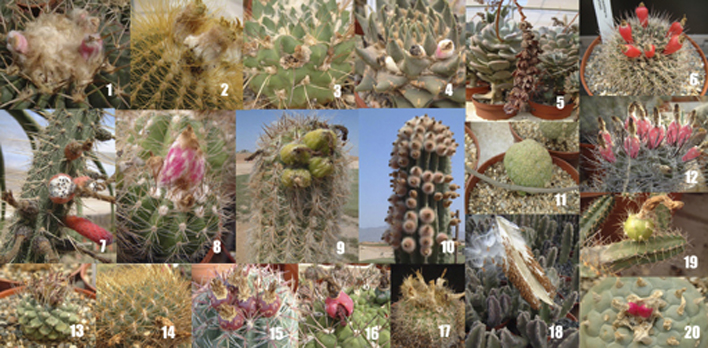 1 Notocactus(Wigginsia) sp
1 Notocactus(Wigginsia) sp
2 Notocactus leninghausii
3 Neowerdermannia vorverkii
4 Ariocarpus trigonus
5 Pachyphytum bracteatum
6 Mammillaria gatesii
7 Cleistocactus variispinus
8 Parodia comosa
9 Oreocereus celsianus
10 Pachycereus pringlei
11 Pseudolithos migiurtinus
12 Neoporteria (Neoch.) floccosa
13 Strombocactus disciformis
14 Sulcorebutis menesesii
15 Ferocactus fordii
16 Gymnocalycium pflanzii
17 Frailea pygmaea
18 Stapelia grandiflora
19 Echinocereus blanckii
20 Lophophora williamsii v. fricii etc.
Melocactus
neryi
Lophocereus schottii
Turbinicarpus swobodae
Mammillaria armillata Lomatophyllum
citreum Monvillea cavendishii
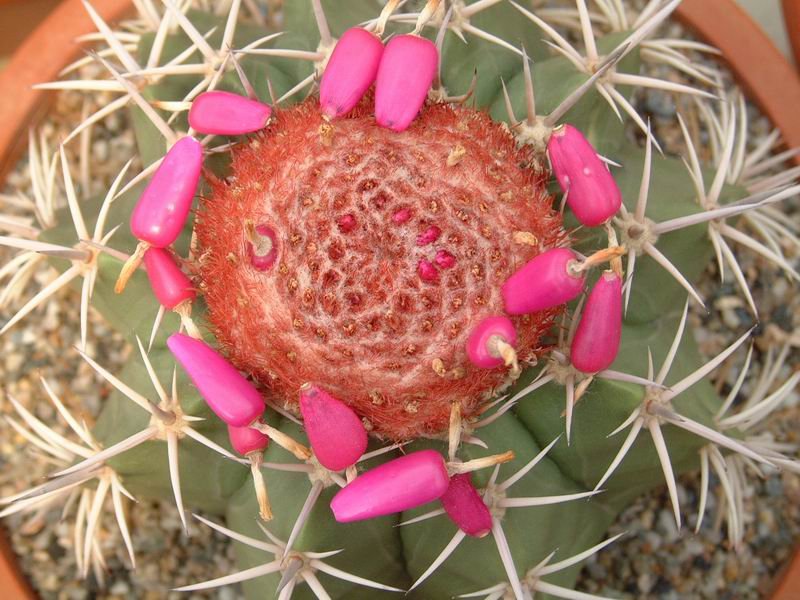
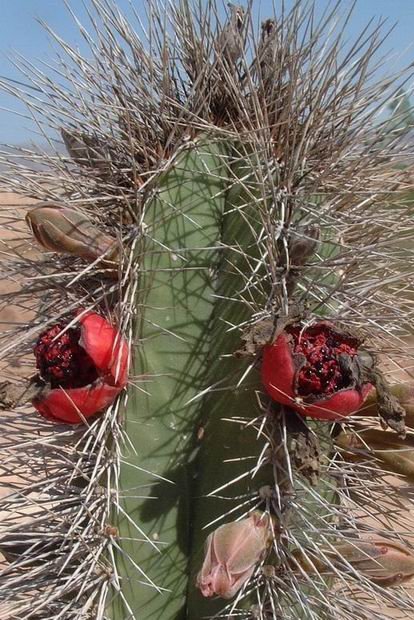
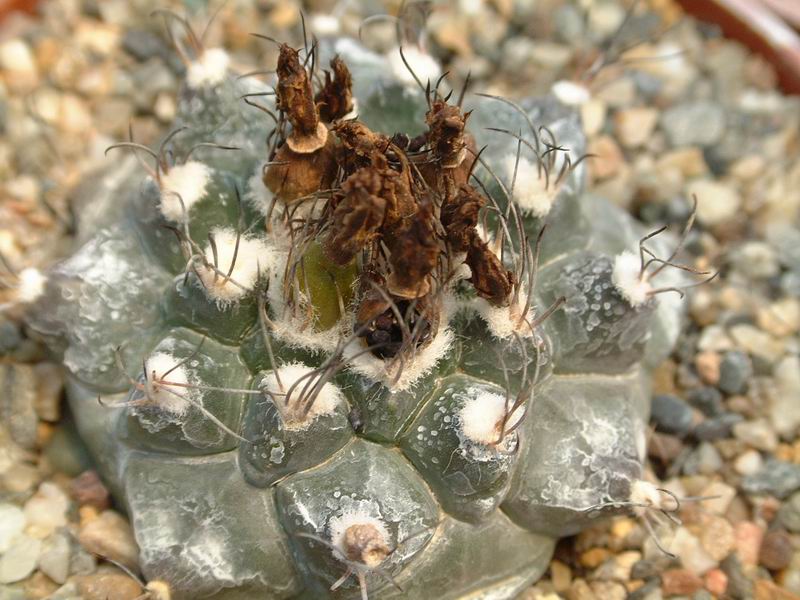
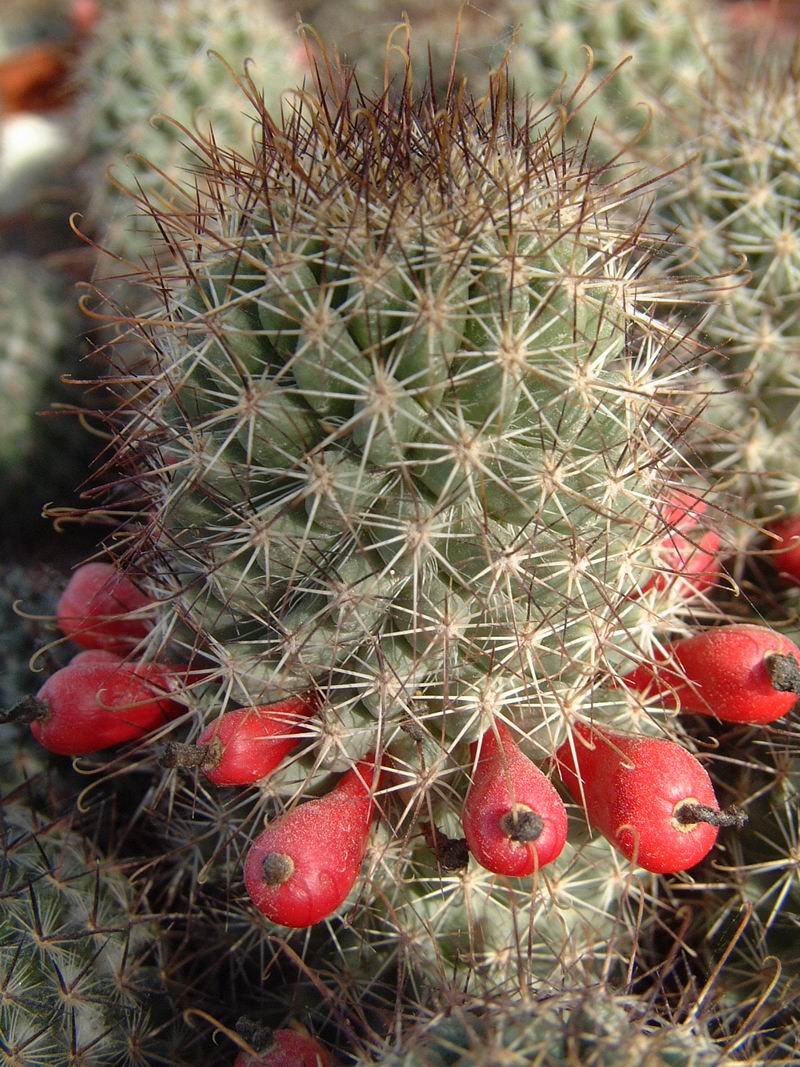
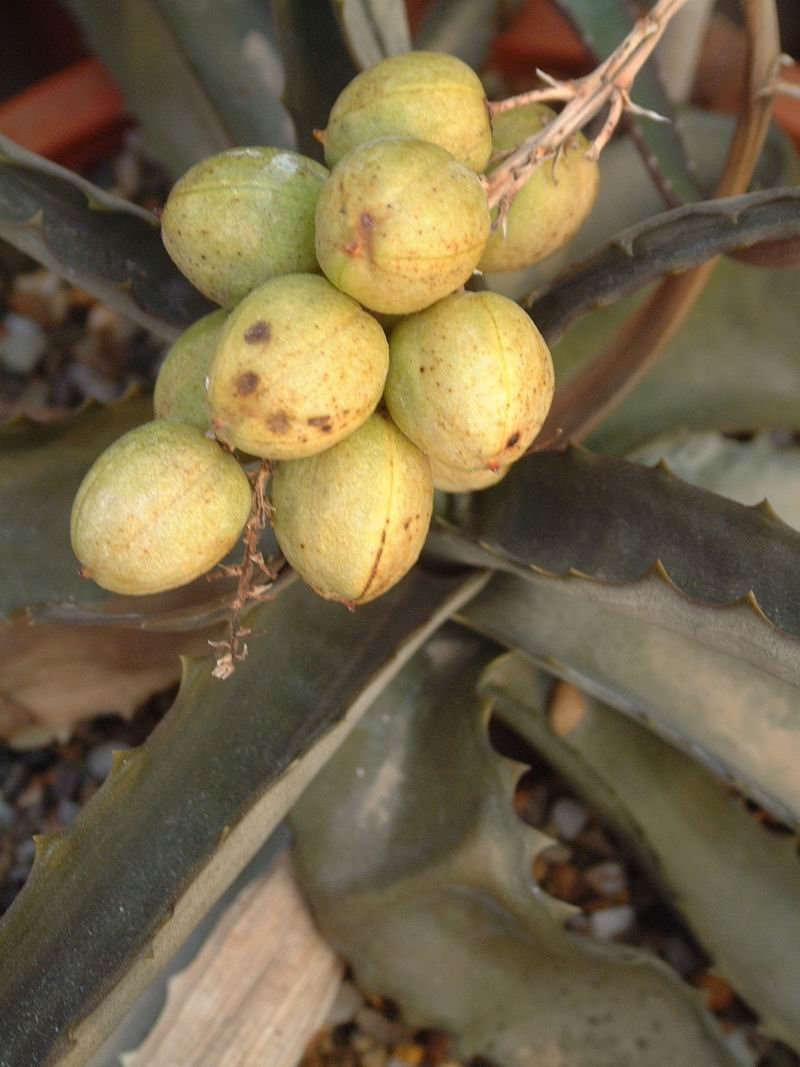
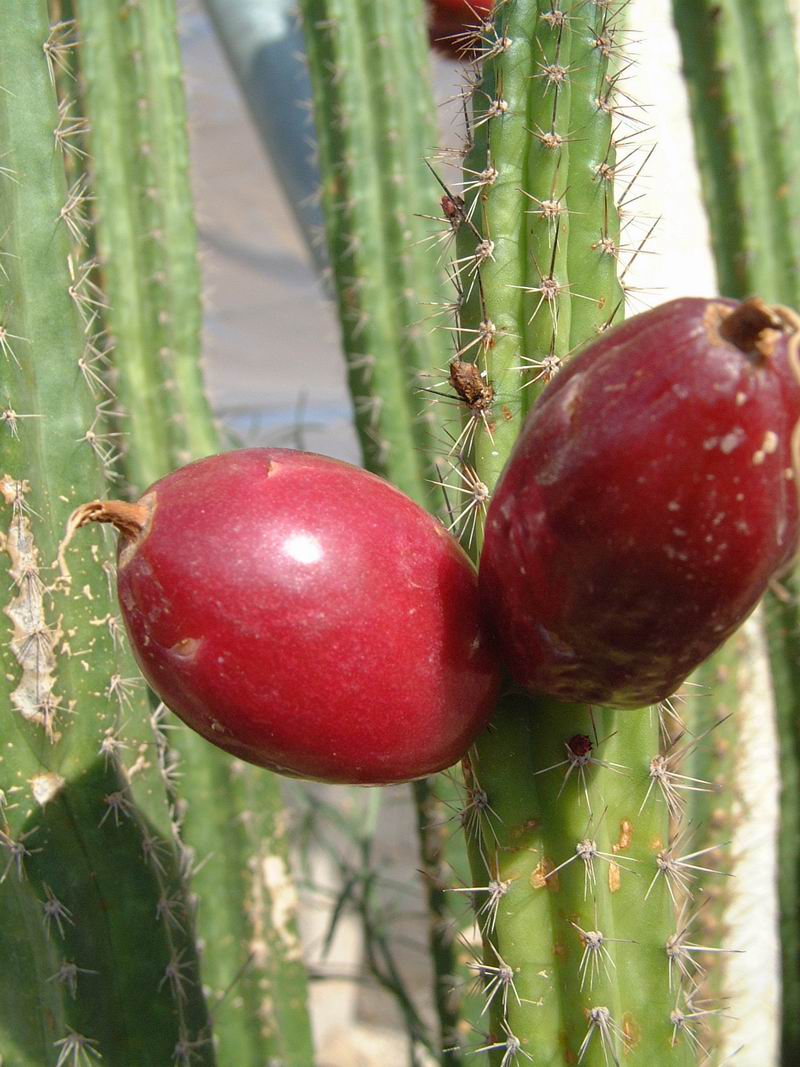
Manual, controlled pollination
Collecting seeds is different according
to species
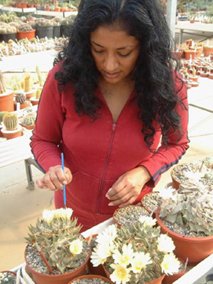
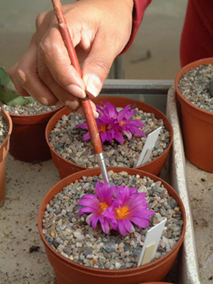
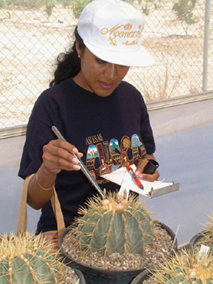
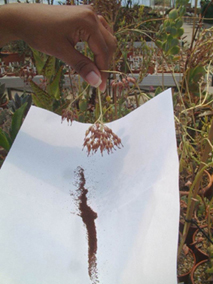
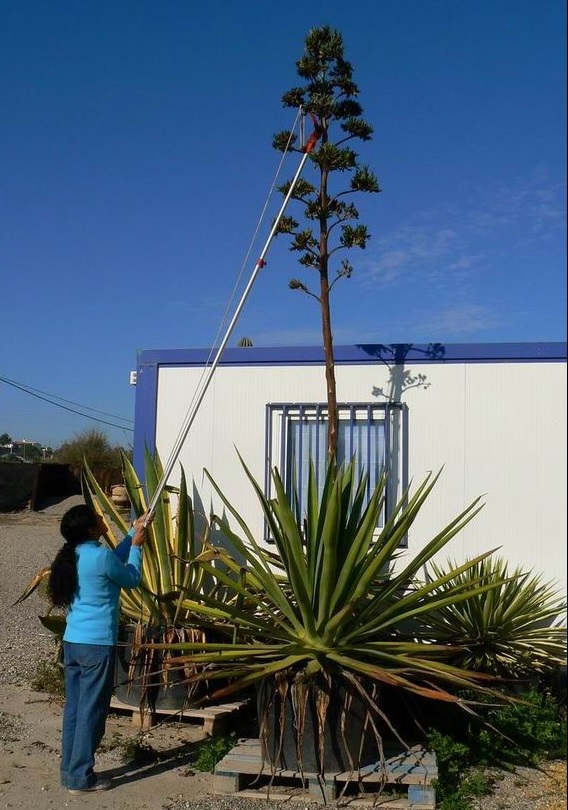
- Cleaning is a long and arduous task :
after harvest, we must clean, dry, wash, moiste the fruits or
seeds, different technics according to the genera, if they are
pertaining to cacti or other succulents...
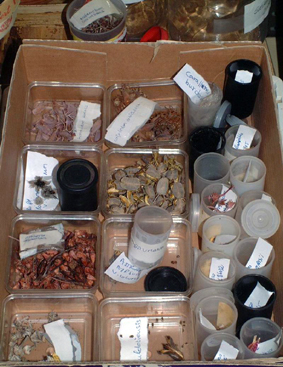
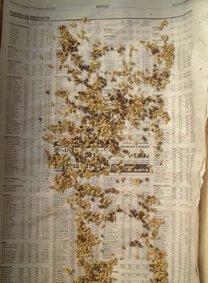
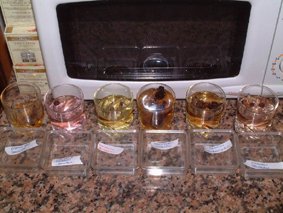
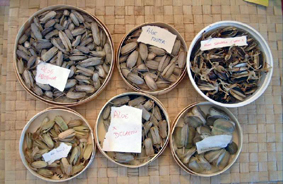
- The seeds of
previous years (according to the species) are eliminated or recycled
for the free packets, some seed species we have thrown may still
perfectly germinate, but it is impossible to know which ones. Lithops, many cacti and
Cucurbitaceae keep their germinative power during 10 to 15 or more years! Others have a lifetime of only one or two years.
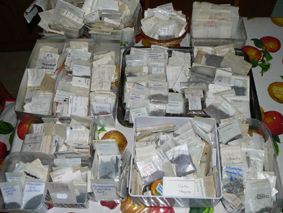 The seeds removed from the
catalogue may represent some kilos. The cristal bags are partly
recycled, but the damaged or polluted ones are thrown.
The seeds removed from the
catalogue may represent some kilos. The cristal bags are partly
recycled, but the damaged or polluted ones are thrown.
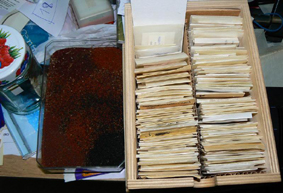
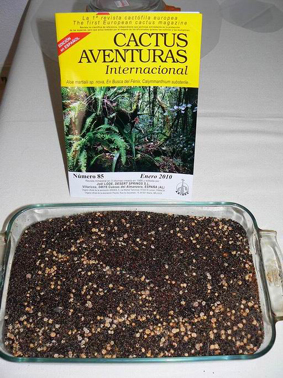
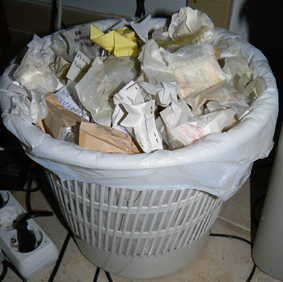
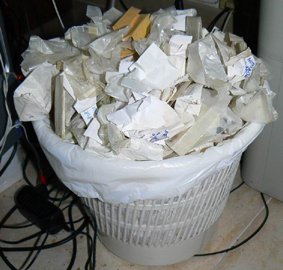
Obviously, we cannot make tests on all the harvested or received
species, but, punctually, or for the professionals who ask for it
or because we have doubts, we realize different sowing tests during the
year.
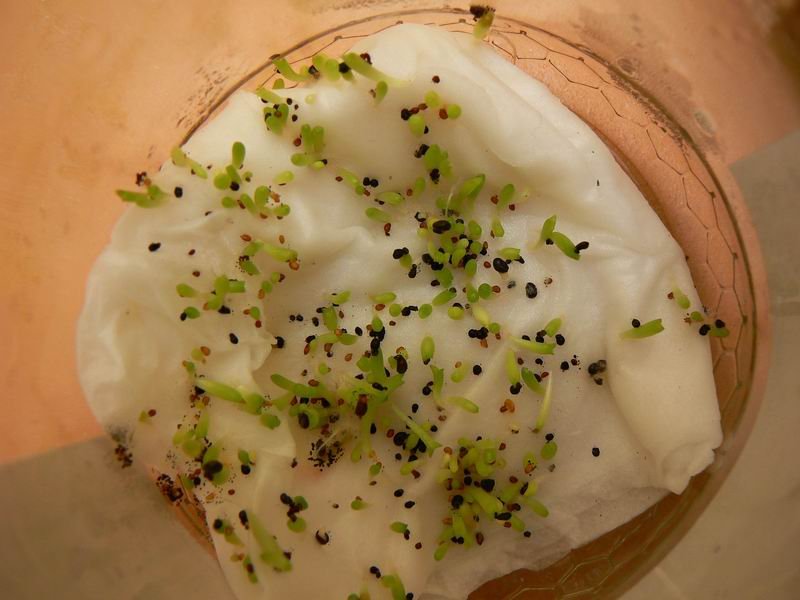
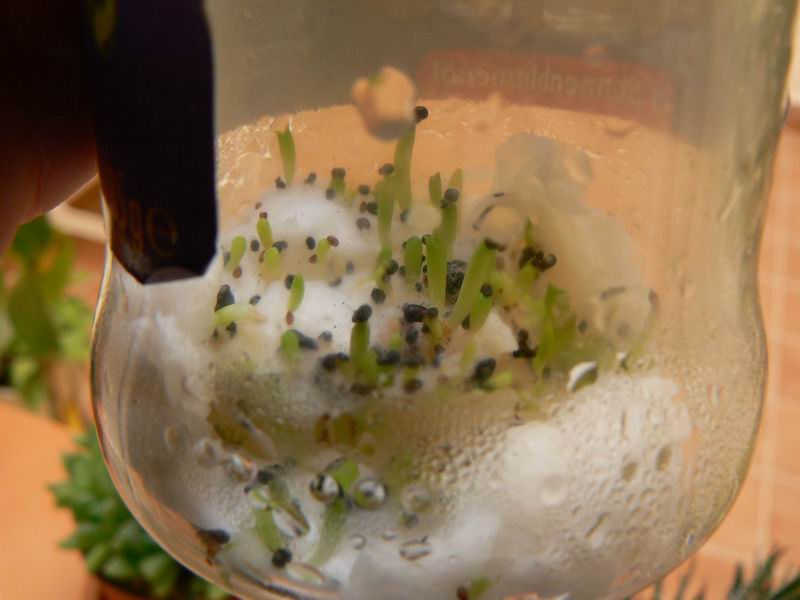
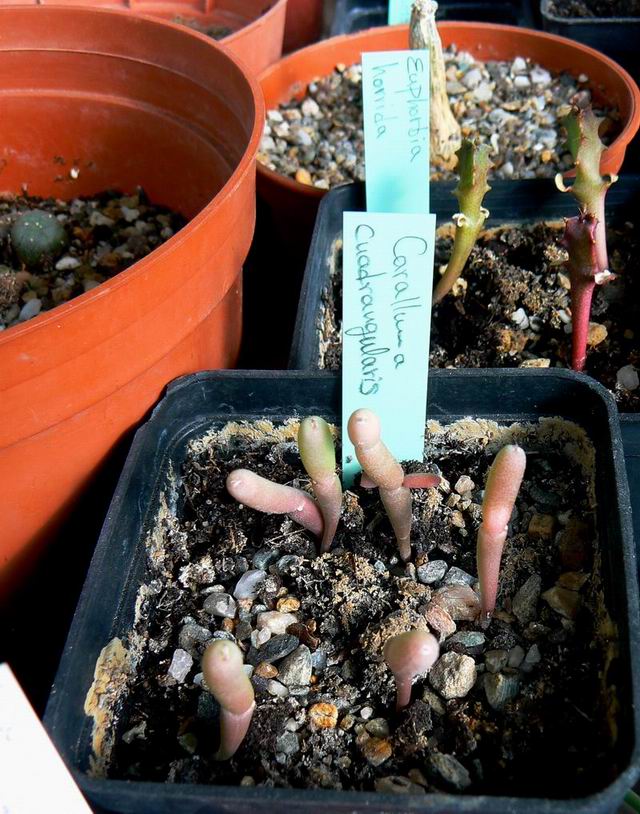
At the end of 2009, as an example, we removed from the 2010 sale
the recently collected seeds of
Caralluma socotrana, because their freshness was extreme,
they were not rather ripe in fact and did not germinate. The first ones
brought back from Socotra germinated freely and they were so wanted
that they were quickly out of stock... For example, of 3 seeds of
Dracaena cinnabari
harvested in the habitat, 2 germinated well, what is rather normal for
seeds collected in habitat. In fact, the third one germinated after 12 months!
In spite of the tests we make, we can sometimes remove seeds which
did not germinate at home, but which you would have perfectly been able
to germinate in different conditions or at another period of
time for optimal germination, which also depends on the genus we
sow.
On the opposite, we may germinate species that some of our customers do not
manage to germinate, e.g. above right,
Caralluma quadrangula...
The seedling is still not an exact
science... Here are some seedlings realized by Mildred:
Adenia glauca Dendrosicyos
socotranum
Commiphora humbertii
Dracaena cinnabari
1
Agave gomez-pompae - 2 Aloe longistyla - 3 Agave salmiana - 4
Haageocereus tenuis - 5 Cephalopentendra ecirrhosa - 6 Agave
victoria-reginae - 7 Agave parryi - 8 Kedrostis aff. hirtella

9 Aloe vogtsii - 10 Apodanthera sagitiifolia - 11 the only seed of Xanthorrhoea glauca that we got and it germinated! - 12 Leuchtenbergia principis -
14 Sansevieria scabra - 15 Zehneria pallidinervia - 16 Agave sobria v. roseana - 17 Euphorbia gorgonis
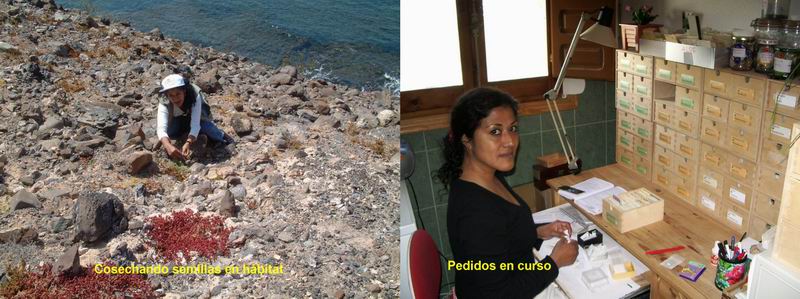
The Seed Catalogue is online and constantly actualized!
Thank you for your patience !
